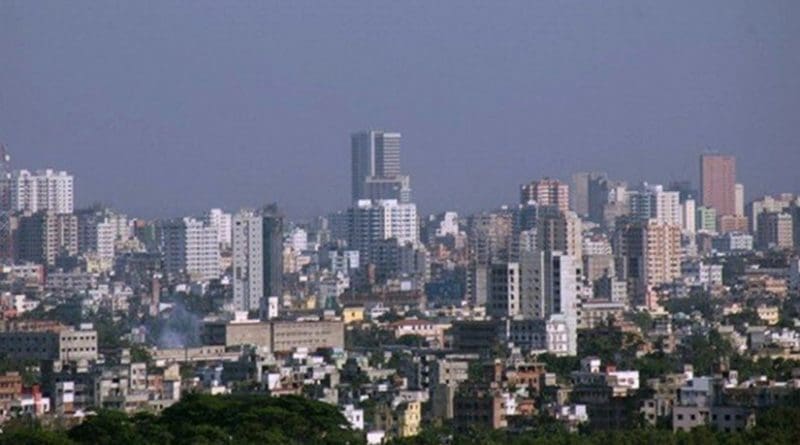Plot To Destabilize Bangladesh – OpEd
By Arab News
By Shamsul Huda
A new plot is in the works to destabilize Bangladesh which has just overcome bloody political turmoil caused by the boycott of the January 5, 2014 parliamentary elections by the Bangladesh Nationalist Party (BNP). The prolonged violence left nearly 100 people dead and thousands injured.
The victims in this case were local common people.
However, the new phenomenon of hit-and-run attacks is a serious cause for concern because security forces, minority communities, bloggers, Christian priests and foreign nationals are being targeted. Worse still, these attacks are being claimed by the Daesh terrorist group through a US-based website, the SITE Intelligence Group. A Japanese and Italian were killed and another Italian was seriously injured. Even the Bangladesh Army, which is generally held in high esteem, was not spared. Attacks on Shi’ite community happened for the first time in the history of Bangladesh.
Now the question has arisen whether Daesh exists in the highly Muslim-dominated country of 160 million people. The Bangladesh government is vehemently denying the presence of Daesh, saying that these attacks are designed by a local radical group at the behest of its overseas masters.
Although Daesh’s existence is denied, there have been some active militant groups like Jama’atul Mujahideen Bangladesh (JMB), Ansarullah Bangla Team (ABT) and Al-Nusrat Front and others linked to Al-Qaeda. The JMB flexed its muscles in 2005 when it exploded around 500 bombs at more than 300 locations covering almost all the 64 districts of Bangladesh in the span of 30 minutes.
Prime Minster Sheikh Hasina recently disclosed to media that her government is under tremendous pressure and is being coerced into admitting to the existence of Daesh, which will mean Bangladesh is an insecure country for foreigners. Her ministers went a step further, pointing to some western countries, including the US and the UK, besides some other EU nations which have issued travel alerts for their citizens intending to visit Bangladesh. Some foreign nationals have been identified as the alleged recruiters of Daesh exploiting poverty in rural areas.
Bangladesh is safe for foreigners, Home Minister Asaduzzaman Khan Kamal claimed citing statistics that more than 10,000 foreigners visited the country in November. Currently, over 224,000 foreigners live and work in the country in a safe and peaceful atmosphere. Russian diplomat Alexander Nikolaev said that Bangladesh has been maintaining communal harmony and there has been an ill-intentioned plan to destabilize the country.
That Bangladesh is safe for foreigners is evident from a number of international events that were organized in recent months. Among the major events, prominent are Bangladesh Development Forum, International Folk Festival, International Club Football Tournament and the on-going Bangladesh Premium Cricket League in which many foreign players have been playing. Ironically, the Australian cricket team has canceled its tour to Bangladesh citing security concerns, but its football team participated in the International Club Cup Tournament. Most importantly, Queen Maxima of the Netherlands recently visited various parts of Bangladesh as a UN Secretary-General’s Special Advocate for Inclusive Finance for Development (UNSGSA).
Bangladesh is, beyond doubts, relatively a safe and secular country where people belonging to many religions live together in harmony for generations. Although there were some communal incidents in the past, they had little religious roots as they were orchestrated mainly to serve the vested interests of some people to grab properties of minorities.
Bangladesh probably, for the first time in recent history, has reached a consensus on a national issue to withstand the challenges of international blame game on whether there is a base of Daesh in the country when BNP’s standing committee member and former army chief Mahbubur Rahman ruled out the presence of the terrorist group. It is hoped that whoever is behind the recent series of attacks on foreigners and minority communities, aimed at destabilizing the country, will be brought to book by the government.

